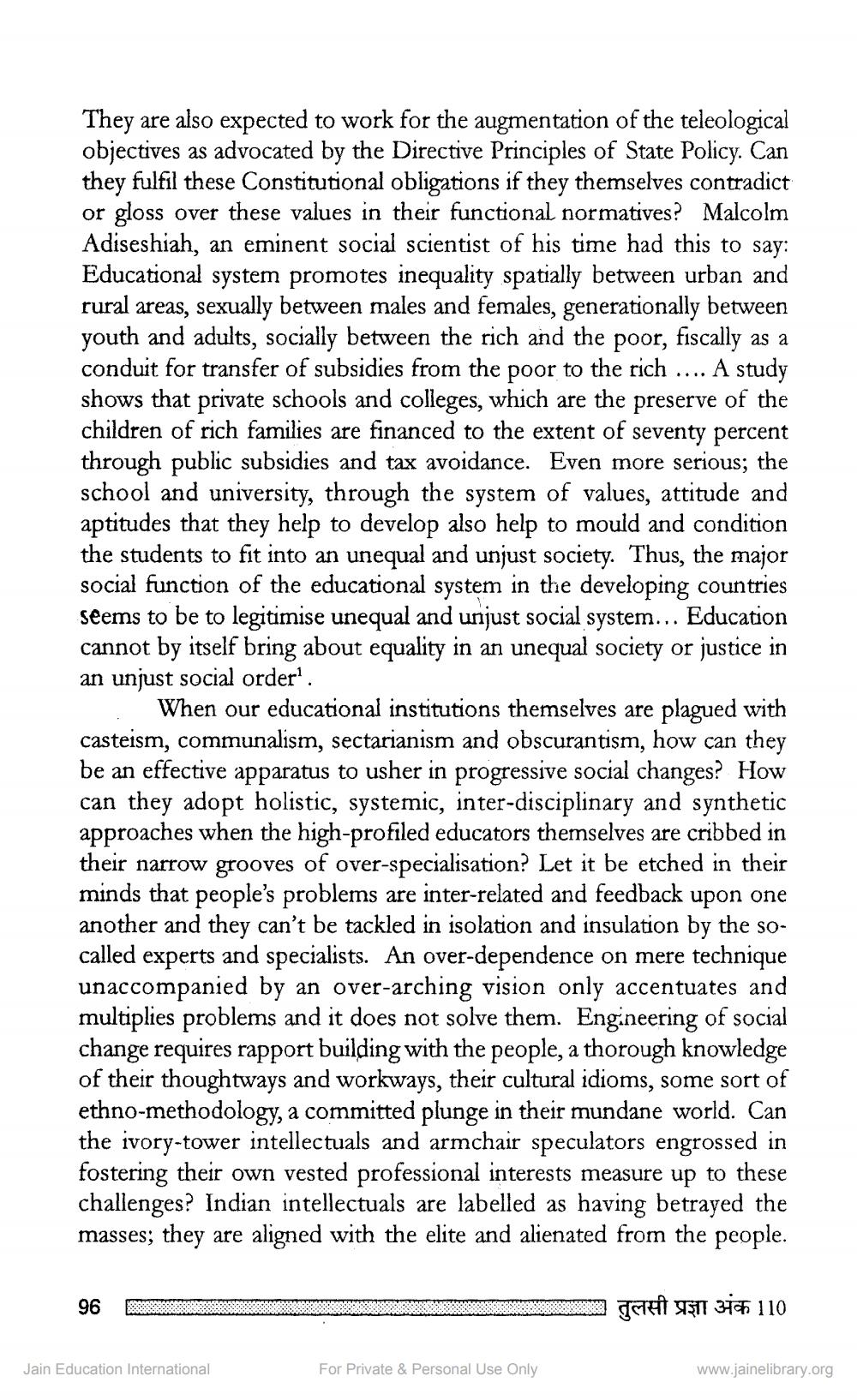________________
They are also expected to work for the augmentation of the teleological objectives as advocated by the Directive Principles of State Policy. Can they fulfil these Constitutional obligations if they themselves contradict or gloss over these values in their functional normatives? Malcolm Adiseshiah, an eminent social scientist of his time had this to say: Educational system promotes inequality spatially between urban and rural areas, sexually between males and females, generationally between youth and adults, socially between the rich and the poor, fiscally as a conduit for transfer of subsidies from the poor to the rich .... A study shows that private schools and colleges, which are the preserve of the children of rich families are financed to the extent of seventy percent through public subsidies and tax avoidance. Even more serious; the school and university, through the system of values, attitude and aptitudes that they help to develop also help to mould and condition the students to fit into an unequal and unjust society. Thus, the major social function of the educational system in the developing countries seems to be to legitimise unequal and unjust social system... Education cannot by itself bring about equality in an unequal society or justice in an unjust social order'.
When our educational institutions themselves are plagued with casteism, communalism, sectarianism and obscurantism, how can they be an effective apparatus to usher in progressive social changes? How can they adopt holistic, systemic, inter-disciplinary and synthetic approaches when the high-profiled educators themselves are cribbed in their narrow grooves of over-specialisation? Let it be etched in their minds that people's problems are inter-related and feedback upon one another and they can't be tackled in isolation and insulation by the socalled experts and specialists. An over-dependence on mere technique unaccompanied by an over-arching vision only accentuates and multiplies problems and it does not solve them. Engineering of social change requires rapport building with the people, a thorough knowledge of their thoughtways and workways, their cultural idioms, some sort of ethno-methodology, a committed plunge in their mundane world. Can the ivory-tower intellectuals and armchair speculators engrossed in fostering their own vested professional interests measure up to these challenges? Indian intellectuals are labelled as having betrayed the masses; they are aligned with the elite and alienated from the people.
96 Metre
OTSE ASI 31 110
Jain Education International
For Private & Personal Use Only
www.jainelibrary.org




